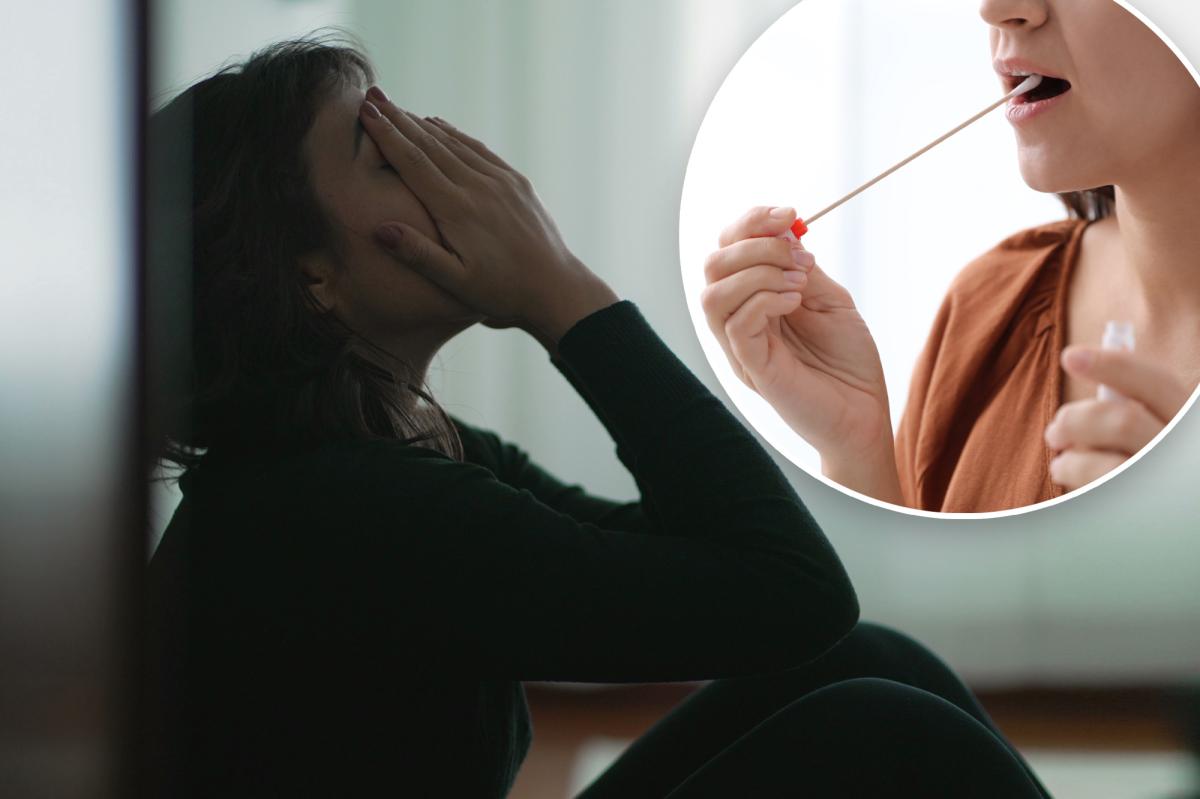A new way to quickly detect depression is causing a literal spit take.
Trusting a depressed brain to self-diagnose is like asking a broken GPS if you’re lost. While it might seem obvious, depression goes undetected in about 50% of cases since symptoms creep up slowly or come about in unexpected ways — meaning millions of people don’t realize they’re depressed.
But the sooner depression is discovered, the faster a treatment can be found — and researchers in Brazil have made a major breakthrough for the 21 million adults that have at least one major depressive episode each year.
 A new text can detect biomarkers related to depression, simply by collecting saliva. New Africa – stock.adobe.com
A new text can detect biomarkers related to depression, simply by collecting saliva. New Africa – stock.adobe.com
The research team has developed a portable saliva-based biosensor that measures levels of brain-derived neurotrophic factor (BDNF).
BDNF is an important protein for brain health and growth. Low levels can indicate mental health conditions like depression, bipolar disorder and schizophrenia, as well as overall cognitive decline.
With this new test, patients add a drop of saliva to the sensor, and within three minutes, results are delivered to a smartphone.
Testing for BDNF usually involves invasive and costly procedures that required lab visits. Now, for $2.19, this novel assessment provides an affordable and noninvasive alternative that can be done just about anywhere.
The test isn’t available to the public, but experts hope this will be a breakthrough for mental health screenings in the near future.
Finding depressive markers sooner can offer more effective treatment and prevent symptoms from becoming more severe.
For the many people who have depressive disorders, persistent sadness and a loss of interest in almost every part of life can make work, school and relationships a daily struggle.
 The new test can detect depression sooner, providing better treatment and decreasing risk of symptoms. Marco – stock.adobe.com
The new test can detect depression sooner, providing better treatment and decreasing risk of symptoms. Marco – stock.adobe.com
Typically, depression screenings are based on self-assessed psychological questionnaires. Common signs of depression include:
Feeling anxious or sad all the time
Not wanting to do your usual activities or hobbies
Feeling irritable or easily frustrated
Having trouble sleeping
Changes in appetite (eating more or less)
Having trouble concentrating
Feeling worthless or helpless
Thinking about suicide or hurting yourself
Typically, these symptoms last for several days or weeks at a time, and don’t go away.
Doctors may refer to certain criteria listed by the American Psychiatric Association as well. They might also do bloodwork to check for thyroid function or vitamin deficiencies, as well as an MRI to check the brain.
While not a standalone diagnostic tool for depression, researchers and doctors alike hope that these saliva tests can provide better insight.
The researchers also hope that this transportable solution can be used to track cognitive health and provide better treatments in real time.

